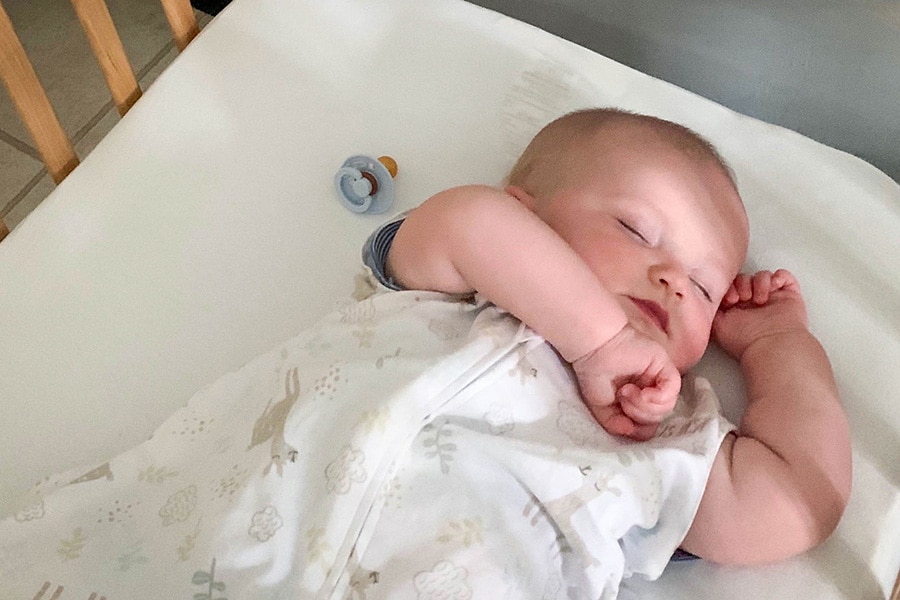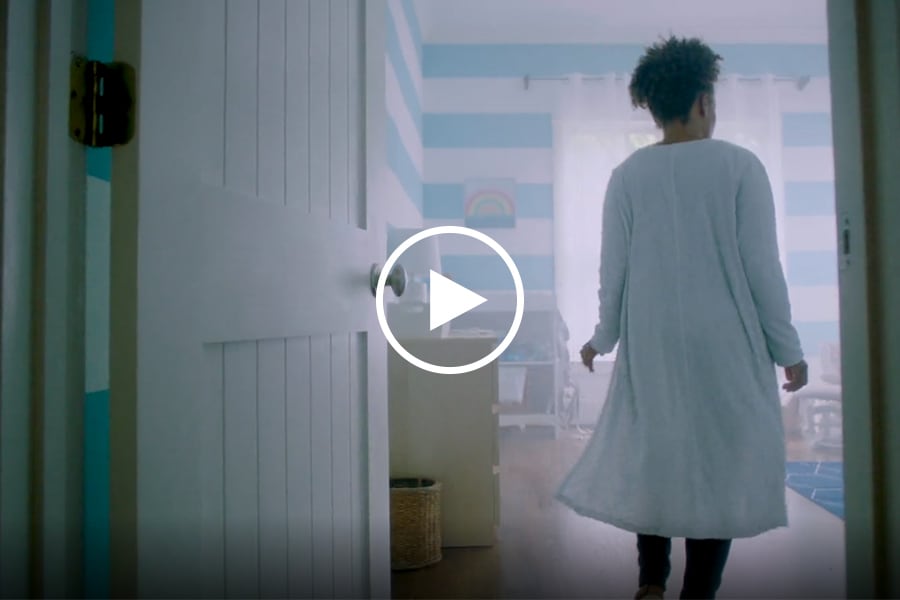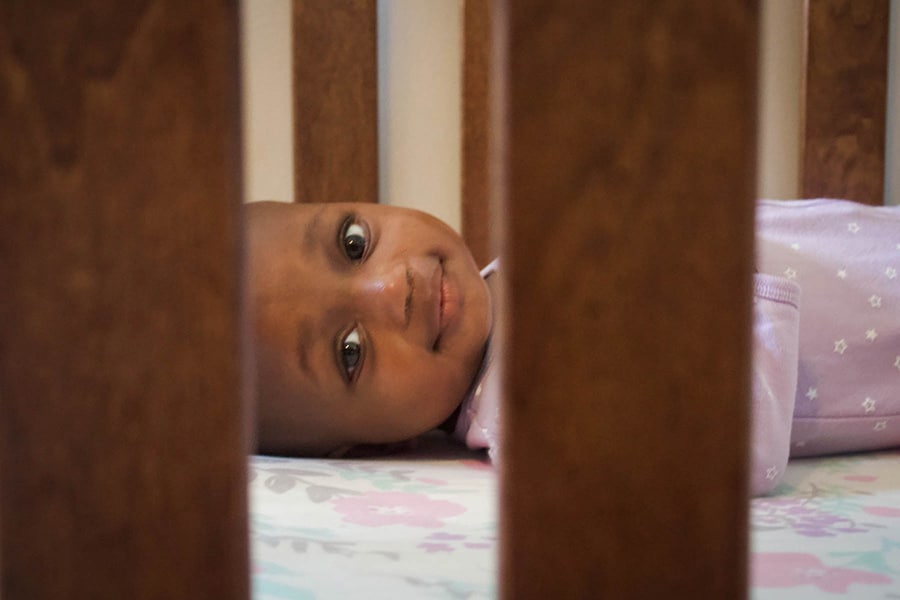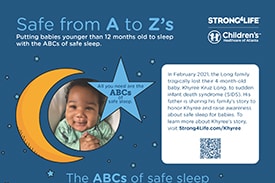Safe Sleep for Infants: A Nurse’s Perspective

You’ve probably heard why safe sleep practices are so important. As a pediatric nurse, I've seen the stories—and the faces—that drive the why. October is Safe Sleep Awareness Month, and I'm on a mission to make sure I never see you in our hospitals.
As an experienced nurse, I spent more than 13 years in our pediatric intensive care unit. While I was there, I saw a lot of things I wish I could unsee. At the top of that list was watching parents leave the hospital without their babies. As if those experiences weren't already horrific enough, such tragedies were often the result of a split-second decision made by otherwise ultra-cautious parents—the kind who spend months preparing the perfect nursery, stressing over the safest car seat and splurging on the gentlest possible detergent for those newborn clothes.
As a mom of 2, I know firsthand that the last thing a sleep-deprived new parent needs is another reason to worry. My goal is not to scare you or add more worry to your plate. Instead, I want to offer reassurance that, when those heavy eyelids are fluttering and "just this once" is on the tip of your tongue, the absolute best thing you can do for your baby is to follow the ABCs of safe sleep. An infant should always sleep Alone, on their Back and in a Clear crib.
Throughout my time in the PICU, my unit was fortunate if we went more than a couple of months without treating a patient for an unsafe sleep injury. Think about that. That’s just one hospital in one city. I’ve personally seen more than a dozen babies whose families were forever changed by unsafe sleeping practices. And I’m just 1 nurse.
Before your little one was born, you read all the books and articles on how to keep your baby safe. You listened to all the advice from well-meaning friends and family members. You followed influencers on social media to build your parenting community. With information overload plus exhaustion, sometimes making the safest choice can be overwhelming.
When you’re ready to pull a crying baby into bed with you, wrap your baby in a blanket or put them to sleep on their stomach “because it’s easier and everyone needs some sleep,” please remember that these “just this once” moments could change your life.
These moments keep me up at night. I've seen babies who have suffocated after falling asleep on someone’s chest or silently smothered while bed sharing. I've seen babies whose airways were blocked by blankets that were supposed to keep them warm and stuffed animals that were supposed to comfort them. I’ve seen babies who couldn’t breathe because they were put to sleep on their stomachs based on grandparents’ advice, even though the baby wasn’t strong enough to lift their neck to reposition themselves.
Thankfully, sudden infant death syndrome (SIDS) rates have dropped dramatically since the American Academy of Pediatrics recommended that all babies sleep on their backs. But accidental suffocation and strangulation in bed (ASSB) rates have stagnated. These deaths are part of a larger category called sudden unexpected infant death (SUID), and there are about 2,500 cases of SUID in the U.S. per year. Here in Georgia, we have one of the highest rates of infant mortality in the country.
So how do we get to work on lowering these numbers? On behalf of pediatric clinicians everywhere, I am encouraging parents to:
- Share a room, but not a bed, with your baby. Snuggling is a great way to bond, but bed sharing significantly increases your baby’s risk of suffocating or becoming trapped during sleep.
- Use a sleep sack (rather than a blanket) if you’re concerned your baby will get cold at night.
- Clear your baby’s crib of stuffed animals, pillows and toys. They may seem comforting and soft, but all they offer during sleep is a suffocation risk. And crib bumpers are marketed as safety devices, but they pose the same risks.
- Make sure you also have conversations about safe sleep with caretakers, such as babysitters or family members.
Safe babies grow up to be the little boys and little girls you dreamed them to be. And once they’ve grown up, the long nights and safe sleep practices will all be worth it.
There will come a day when “just this once” has a welcome place in your parenting. Today is not that day. You’ve got this, and we’re here to help along the way.
If your child has an injury or is showing signs of illness, call your doctor or visit an urgent care center. If your child has a life-threatening injury or illness, is having trouble breathing or is unconscious, call 911 and/or visit an emergency department immediately.


